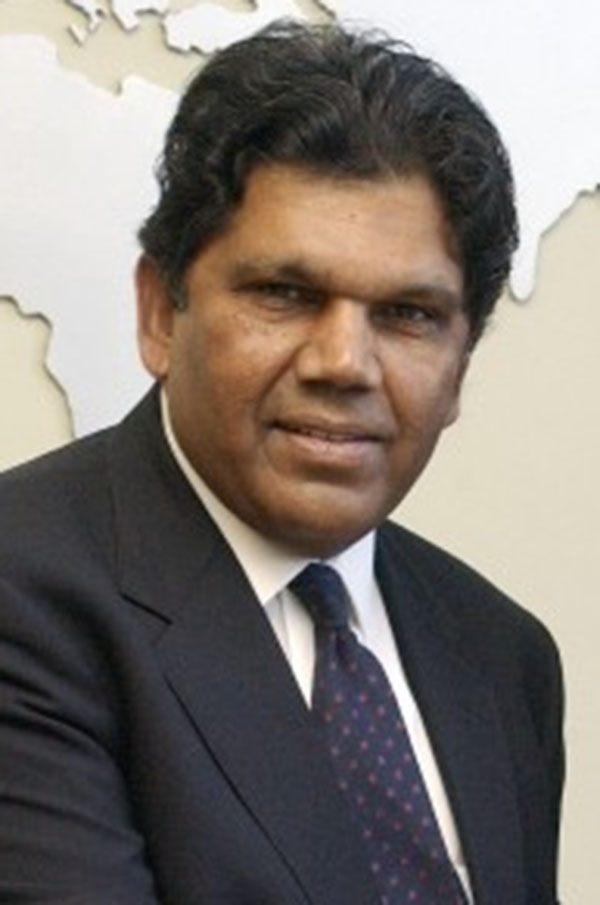By Dr Bertrand Ramcharan, Barrister-at-Law; Author of The Guyana Court of Appeal (2002)
Seventh Chancellor of the University of Guyana
Ideas travel, or not, depending on their intrinsic merit. Ideas are permanent; power-holders are transitory. Ideas span generations. I have previously explored the ideas of returning to a constituency system in Guyana and bringing in a strong national human rights commission. Today I invite the reader to consider whether the establishment of a Constitutional Court might help foster national cohesion in Guyana.
Section 8 of the South African Constitution provides that “the Bill of Rights applies to all law, and binds the legislative, the executive, the judiciary and all organs of state.” Section 39 (1) specifies that when interpreting the Bill of Rights, a court, tribunal or forum must promote the values that underlie an open and democratic society based on human dignity, equality freedom.
The South African Constitutional Court is the guardian of these values. In the Mhlungu case, Justice Albie Sachs, who gave public lectures in Guyana, considered the existence of the South African Constitutional Court “as part of a global development of constitutionalism and human rights.” This is a goal that Guyana should aspire to.
Section 39(2) of the Constitution provides that: “When interpreting any legislation, and when developing the common law or customary law, every court, tribunal or forum must promote the spirit, purport and objects of the Bill of Rights.” In other words, whenever a court is dealing with the common law it must test the common law against the demands of the Bill of Rights. Only thus can the Constitution’s promise be delivered of a legal system founded on dignity, freedom and substantive equality.
The South African Constitution of 1994 is a plan for a new society. It enshrines the foundational values of dignity, equality and freedom. Basic to the implementation of the Constitution is the principle of legality, namely the notion that all public power must be sourced in the Constitution, expressed in national legislation and exercised in a way that needs to be rational, fair and reasonable.
In this spirit, the Constitutional Court held, in 2017, that President Zuma had to disclose the reasons for his 2017 Cabinet reshuffle – a spectacular application of the principles of justification and accountability. Alas, the same Court has recently sentenced him to imprisonment for failing to respect legal authority.
In the Glenister case, the Constitutional Court sourced an obligation to establish a viable, and thus independent, anti-corruption unit in a reading of South Africa’s international obligations coupled with the Constitution. This case exemplified the principle that constitutional provisions should be given good faith interpretation in the light of relevant international law.
In the Makwanyane case, the Constitutional Court held that the death penalty was unconstitutional, again on grounds of incompatibility with constitutional law
coupled with international law.
In the case of Daniels v. Scribante, the Constitutional Court upheld a claim by Ms. Daniels, a farm worker who occupied a cottage on the farm where she worked, that the right to reside accorded to her included the right to make improvements in her dwelling – even if the owners did not agree to the improvements.
In a case where the South African government let former Sudanese President Bashir leave South Africa notwithstanding a legitimate request from the Prosecutor of the International Criminal Court to arrest him, the Government was roundly criticized by the Courts. When, in an act of pique, the Government sought to withdraw its ratification of the Statute of the International Criminal Court without the prior consent of Parliament, the Courts held that this was unlawful. The South African Government eventually complied with this ruling and revoked its notification of withdrawal.
There are other examples of the positive role of a Constitutional Court in a fractured developing country. On 3 February, 2020, for example, the Constitutional Court of Malawi ordered the Electoral Commission to organise fresh Presidential elections before July that same year. A panel of five judges led by Justice Healy Potani cited widespread irregularities in the conduct of the elections as the reason for declaring the outcome of the polls as null and void.
Similarly, on [1] September, 2017, Kenya’s Supreme Court, performing constitutional functions, had annulled the result of the previous month’s presidential election, citing irregularities and ordered a new election within 60 days. In delivering the decision, Chief Justice David Maraga said that the 8 August 2017 election had not been “conducted in accordance with the constitution” and declared it “invalid, null and void.”
The jurisprudence of courts such as these, especially the South African Constitutional Court, has deep relevance for fractured countries such as Guyana. It brings out well the bold experiment to uphold the traditional rule of law inherited from the common law while giving it contemporary meaning in light of constitutional provisions and the economic and social realities of the country.
How might Guyana have an open debate on issues such as these?







